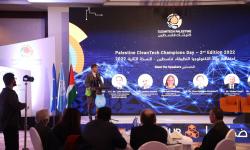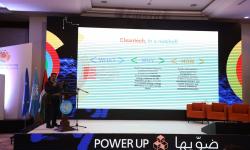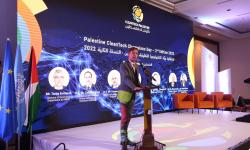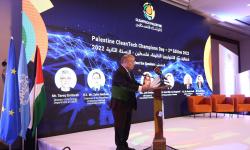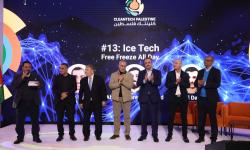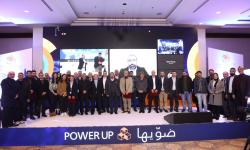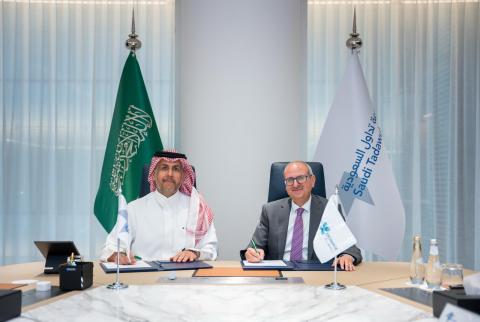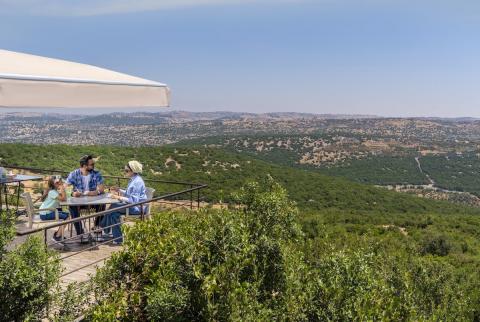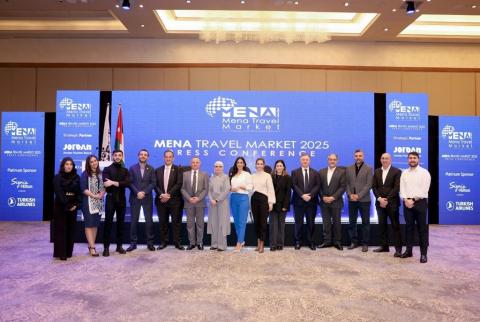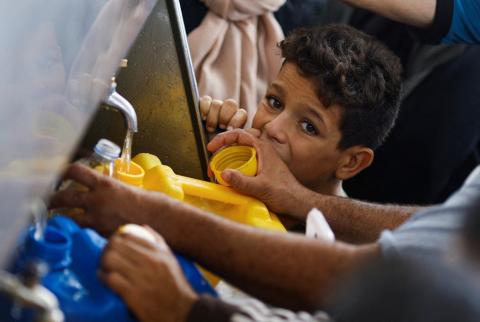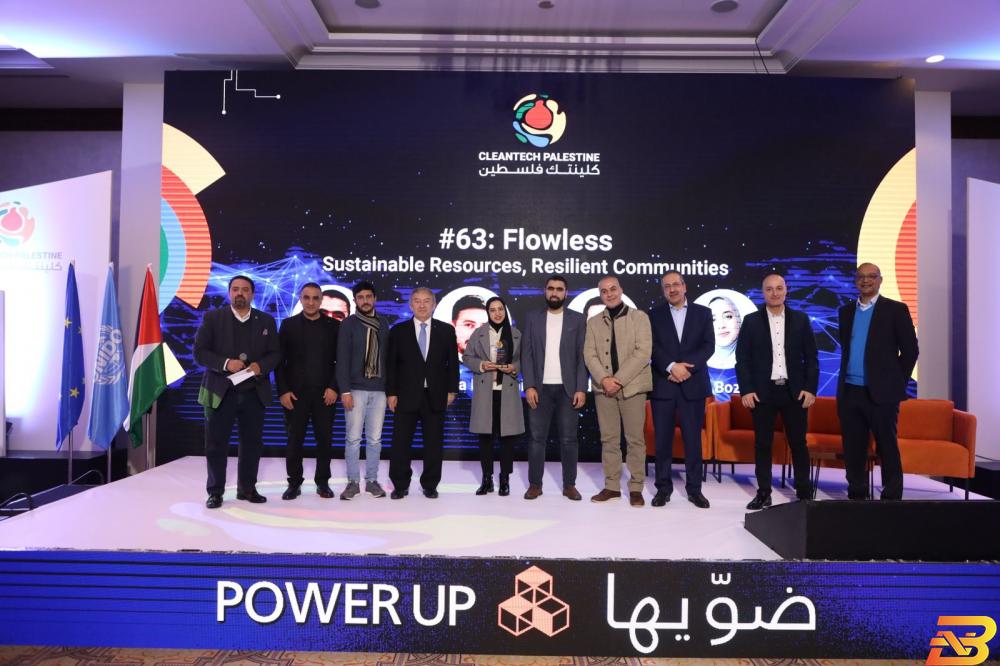
Ramallah-(BNEWS)- The United Nations Industrial Development Organization’s MOUSTADAMA Programme celebrated today the conclusion of the 2nd Edition of its Palestine Cleantech Innovation Competition 2022. The event, which was held simultaneously in Ramallah and Gaza in the presence of representatives of the Government, diplomat community, the United Nations and the Palestinian business community, gave the startup finalists the chance to pitch their projects and compete for up to three prizes of up to 25,000 € each.
The eight startups – Flowless, Food Harvest, Free Wind Turbine, Future Technology and Energy Solutions, IceTech, Noor Tech, Plastic Waste to Fuel, Sustain Tech - were selected during the course of two “Pre-Champions Days” by a technical jury made up of distinguished local and international experts operating in cleantech innovation and business consultancies. The projects presented include prototypes and solutions related to the energy efficiency, renewables and the water energy nexus sectors and are aimed at responding to the energy challenges faced by the industrial sector. These projects also aim to support the development of specialized entrepreneurship with a high technological added value which will help create new jobs and promote technological innovation, energy resilience and competitiveness in Palestinian industry more broadly.
"MOUSTADAMA’s Palestine CleanTech Innovation Program has played a leading role in introducing the very concept of cleantech and pushing the development of a cleantech industry in Palestine. Not only has it provided funds to early commercial-scale projects, but it has also built the capacity of both the startups and the host organizations, encouraged business networking, and provided linkages with potential investors and other stakeholders”, stated Khaled Osaili, Minister of National Economy. “Now, time has come to consolidate these foundations for long-term national ownership of a cleantech framework, so that new brilliant Palestinian ideas can continue to be turned into tangible projects even in the future".
"Entrepreneurship, together with clean and renewable energy, are essential for economic development. Clean energy is an important and essential indicator for measuring countries’ economic and national sustainability, and energy supply in Palestine is one of the biggest challenges at the top of the national priorities of the Government. We thank the European Union for its unconditional political support for the State of Palestine, and we thank the implementing partners of the project for their efforts towards a green Palestine based on clean energy", stated Ussama Sadawi, Minister of Entrepreneurship and Empowerment.
"Climate change and current events worldwide remind us once again how crucial clean energy is for the security and economic stability of our societies. Clean energy minimizes the impact on the natural ecosystem, has the advantage to be locally produced, and allows the industrial system not to be stifled by erratic and overpriced energy supply. This is particularly important here in the occupied Palestinian territory where the Palestinians are suffering due to the lack of control over their natural resources and their complete energy dependency. To address this challenge, we have been working closely with UNIDO, the Palestinian Ministry of National Economy, Ministry of Entrepreneurship and Empowerment and the Palestinian Natural Resources Development Authority. The MOUSTADAMA Programme is a successful demonstration of this strategic partnership. Our joint work is providing substantial and sustainable support for new startups while offering the new technologies implemented by Cleantech", stated the EU Representative in Palestine Sven Kühn von Burgsdorff.
"Against the backdrop of the global energy crisis, the CleanTech initiative could not be timelier,” UN RC/HC, Lynn Hastings, said. “Moreover, here in Palestine, Palestinians continue to pay one of the highest electricity prices in the Middle East, a brake on development. The Palestine CleanTech Innovation Competition is an important opportunity to enable participation, contribute to the creation of new businesses and strategically support Palestine", she stressed.
"With its Global CleanTech Innovation Program (GCIP), UNIDO has been at the forefront of cleantech innovation and sustainable entrepreneurship from 2011. To date, GCIP has been running in more than ten countries and created tangible returns with thousands of startups and industries involved. In Palestine, UNIDO is committed to eliminate the barriers to industry’s’ business and technology development and to foster achieve sustainable commercial success by making its expertise available to the growth and sustainability of the Palestine cleantech ecosystem”, stated Tareq Emitarah, Director of the Energy Department at UNIDO.
"Cleantech is here to contribute to the biggest challenge our civilization is confronted with: powering sustainability", stated Ahmed ElFarra, UNIDO Palestine Senior Programme Officer.
"Over the past year, we have worked hard to consolidate the cleantech ecosystem that the MOUSTADAMA Program has helped build.With new post-acceleration services, dedicated educational materials, fablabs for hardwear design, and mentorship that specializes in cleantech needs, and, most importantly, with a system of national ownership that can embrace and flourish this model, we are confident that Palestinian companies in the sector can thrive and contribute to energy competitiveness and the fight against climate change", he continued.
The Palestine CleanTech Innovation Program is the first CleanTech Competition and Acceleration Program ever implemented in Palestine and in the region. It was launched by the United Nations Industrial Developed Organization (UNIDO) in July 2021 under its MOUSTADAMA flagship Programme. Cleantech refers to all the technologies and solutions that are conceived to address environmental challenges, including energy supply and resource optimization, and foster sustainable development. Cleantech is considered a crucial area of development for achieving a sustainable future as it helps to reduce the negative impact of human activities on the environment and mitigate the effects of climate change. The industry has been growing rapidly in recent years - its market size in 2021 was of $200 billion - and it is expected to continue growing in the coming years.
An independent jury of international experts in the fields of renewable energy, energy efficiency, and business development nominated the following Champions:
1st Prize: Flowless
Flowless helps factories and manufacturers improve daily operations and resource efficiency through remote monitoring and control automation. Flowless web platform analyzes real-time data to help automate processes, reduce waste, and increase profitability. Flowless' system utilizes Artificial Intelligence-aided analytics to detect faults and optimize operations, ultimately reducing operational costs, input materials and energy losses.
2nd Prize: IceTech
Ice Tech presents an innovative, cost-saving solar solution to keep freezers running smoothly. Its core component is a PV solar panel that captures energy from the sun to feed a Maximum Power Point Tracker (MPPT) controller that maximizes the power output, and then conveys it to a DC compressor that efficiently runs the freezer.
3rd Prize (ex-aequo):
Future Technology and Energy Solutions
The startup has developed a solution to break down agricultural waste into several useful products, including briquette charcoal (70%), biochar (20%), wood vinegar (7%), and Tar (3%). More concentrated, smokeless, and slow-burning, briquette charcoal is a cleaner and more efficient fuel source. It is also easier to store and transport than traditional charcoal.
Sustain Tech
Sustain Tech has created a solution for PV-Gen hybrid systems that works through a Dynamic Hybrid Controller (DHC). Working with both old & new generators without the need for costly modifications, the DHC intelligently integrates both solar and generator systems, allowing the generator to operate at the minimum load and maximizing the utilization of solar energy. Fuel consumption can be reduced by 60%.
The first and second Champions will each receive a prize of EUR 25,000 for the implementation of their research and development activities. The third prize will be divided between the two ex-aequo start-ups. All Champions will benefit from the post acceleration services provided by the MOUSTADAMA Programme, which include linkages to investors and the participation to the GCIP Forum in Vienna.
The Finalists of the Palestine CleanTech Innovation Competition – 2nd Edition 2022 are:
Food Harvest
Food Harvest has developed a biogas production from organic waste. A lab mixture will speed up the digestion process, increase methane production in an industrial digester for organic waste, and then recycle the leftovers into compost.
Free Wind Turbine
The Free Wind Turbine is a vertical wind turbine consisting of three wings or frames. Its vertical pillar is the main axis around which the wings move, generating electricity from the wind. This new design provides a solution to several problems, such as the global deficit in electric energy production and a solution to increasing global warming. The new system is also reduces manufacturing, transportation and installation costs and is much more easily maintained.
Noor Tech
Noor Tech has developed a vertical-axis wind turbine design. Its double-layer technique enhances efficiency by creating a concentrated wind flow which can be received from all directions. NOOR Tech turbine is cost-effective, with savings up to 40% to 75% on electricity bills, and an additional benefit of 1/3 of the battery life.
Plastic Waste to Fuel
Plast2Fuel's solution converts plastic waste into fuel using pyrolysis technology. On average, every 1,250 kg of plastic waste can be converted into 1,000 liters of fuel to be supplied to factories. The company will offer the fuel at a lower price, contributing to savings of up to 17% on industrial energy costs annually.
